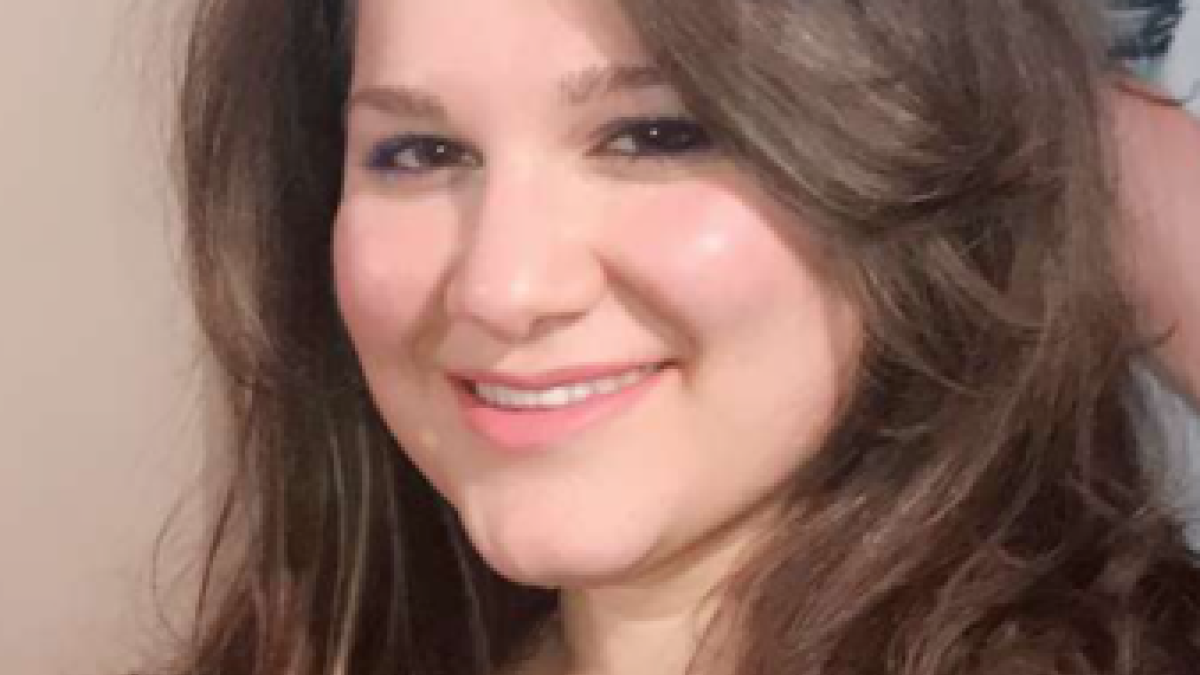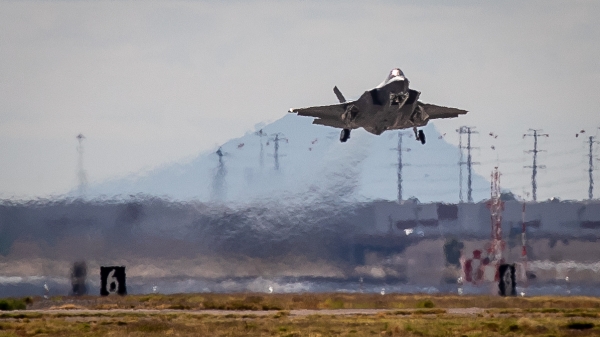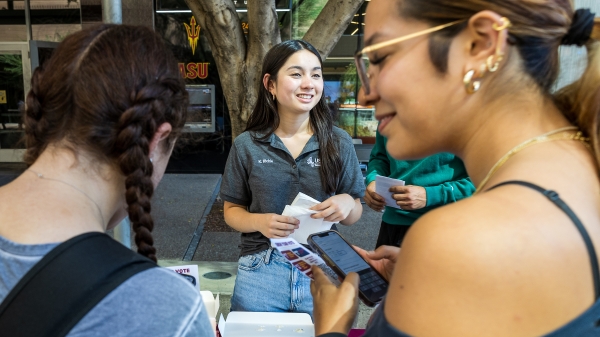From Iraq to ASU, Taghreed Adnan wants her language to help others

Taghreed Adnan hopes that her language skills will make her an inclusive optometrist .
For Taghreed Adnan, studying Arabic at the School for International Letters and Cultures at Arizona State University wasn’t just a way to brush up on her language skills. It allowed her to connect with a culture and language she had to leave behind in Baghdad when her family escaped the Iraq War.
A biochemistry major with goals of her own optometry practice, Adnan recognized that her language background was a major asset, both to her work and her own interests.
“I’m really blessed to be taking my classes,” Adnan said. “I spoke Arabic when I was younger, but after we came to the U.S. — I’ve been here for about a decade now — it’s been hard to find people who speak Arabic. My community has been pretty small. It’s been nice to step back into it.”
Adnan’s family left Iraq in 2006 for Jordan and lived there as refugees for three years, in hiding until they got United Nations cards and enrolled Adnan and her siblings in international school. That’s where she first studied English, which helped when they moved to Arizona. Despite this, she said the culture shock lasted for a couple of years.
“Not being able to speak perfect English, or not knowing where to go to get food, it was really, really rough,” Adnan remembered.
“I thought my Arabic was not good, so I was never brave enough to take an Arabic class … but I made friends and became more comfortable translating for students. It was a good opportunity for me to take this class.”
She said studying Arabic again has made her last semester at ASU memorable. In addition to school, she works at two different eye-care clinics.
“There’s a lot of people in Phoenix who have a language barrier, specifically Arabic,” she said. “I’ve been in situations every couple of months where I have to translate for the doctor to communicate properly.”
Adnan said that has been happening to her ever since she moved to the United States.
“We see 20 to 50 patients a day, and I’m not going to lie, a lot of our patients are international,” Adnan said. “Being able to be comfortable speaking to people from other cultures is really important. Being able to speak their language is even more crucial.”
Adnan hopes that between her medical knowledge and language skills, she’ll be able to help patients from a broad background and get people the help they need.
More Local, national and global affairs

ASU creates pathways to public service careers for military students
The School of Public Affairs at Arizona State University is making careers in public service easier to access for military…

Minting community leaders and stellar citizens: ASU’s Public Service Academy approaches 10-year milestone
Airports that are easier to navigate.Health care that is simple to access.Helping underrepresented youth reach college.These are…

'War Game' documentary highlights threats of extremism to national security
The riots at the U.S. Capitol on Jan. 6, 2021, were a wake-up call that political divisiveness can turn violent, threatening the…